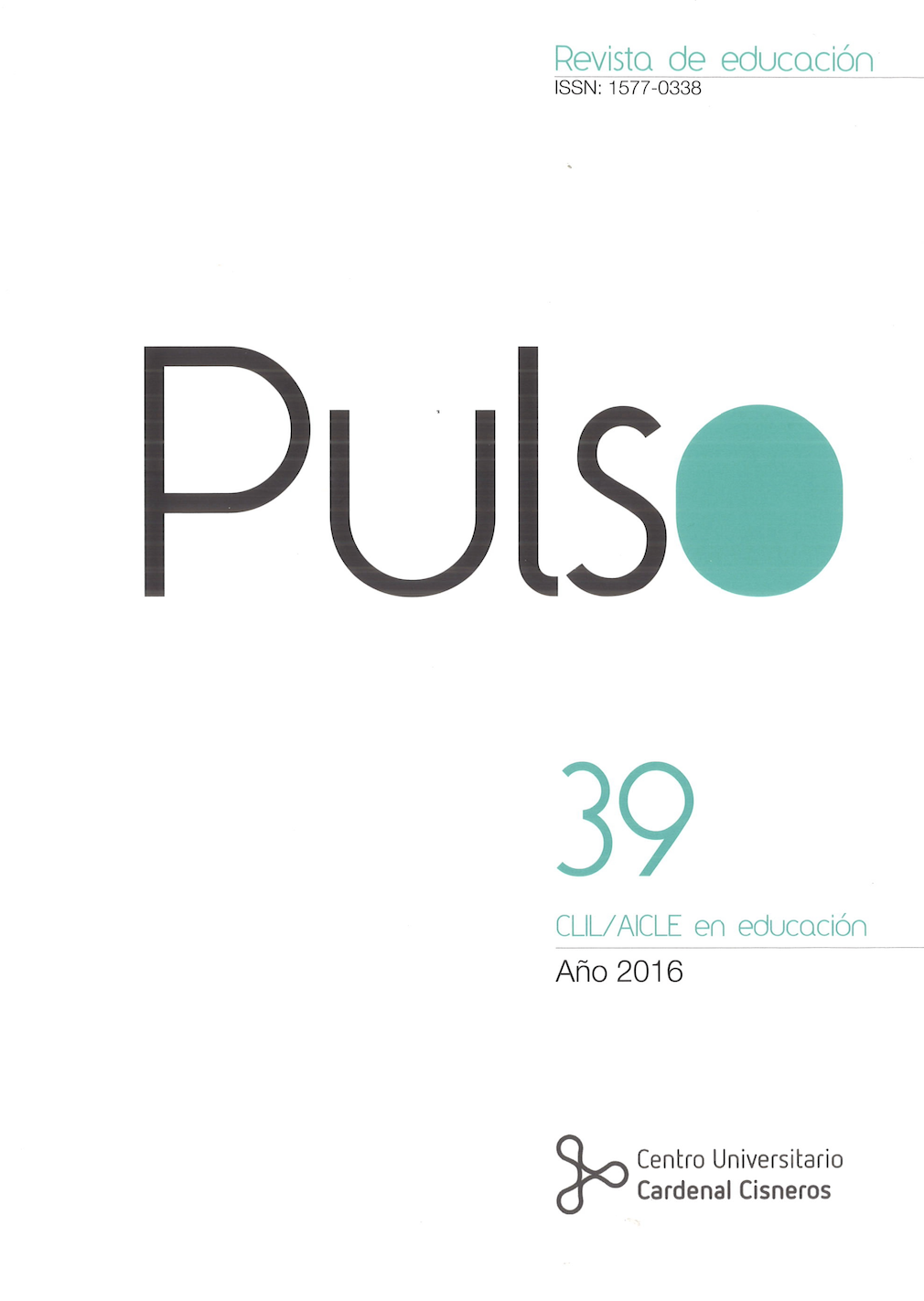Making CLIL workable. A review of Ball, P.; Kelly, K. and Clegg, J. (2015) Putting CLIL into Practice.
DOI:
https://doi.org/10.58265/pulso.5099Abstract
Review of the book:
Ball, P., Kelly, K. P., & Clegg, J. (2015). Putting CLIL into practice. Oxford University Press.
Downloads
References
Fernández Fernández, R. (in press) Students’ perceptions and concerns on the use of CLIL in Teacher Education Degrees. 39th AEDEAN Conference Proceedings. Universidad de Deusto, Bilbao. 11-13 november. [E-book].
Johnson, M. (2012) Bilingual degree teacher’s beliefs: a case study in a tertiary setting. PULSO, 35: pp.49-74.
Kells, S. (2016) Teaching Teachers How To Teach An Evaluative Study of Teacher Training and Professional Development of Primary School Teachers in the Bilingual Program of the Community of Madrid (Master’s Thesis) Unpublished Master Degree Thesis. Instituto Franklin/Universidad de Alcalá.
Mehisto (2012) Criteria for producing CLIL learning material. Encuentro, 21, pp. 15-33. Retrieved from: http://www.unifg.it/sites/default/files/allegatiparagrafo/21-01-2014/mehisto_criteria_for_producing_clil_learning_material.pdf
Meyer, O.; Coyle, D.; Halbach, A.; Chuck, K. and Ting, T. (2015). A pluriliteracies approach to content and language integrated learning – mapping learner progressions in knowledge construction and meaning-making. Language, Culture and Curriculum, 28/1: pp. 41-57.
Downloads
Published
How to Cite
Issue
Section
License
Copyright (c) 2022 Pulso. Revista de educación

This work is licensed under a Creative Commons Attribution-NonCommercial-NoDerivatives 3.0 Unported License.
This journal offers immediate open access to its content based on the idea that offering readers free access to research favours a global exchange of knowledge.
Papers are published in the electronic version of the journal under a Creative Commons License: Attribution-NonCommercial-No derivatives 4.0 International
Authors are allowed and encouraged to promote the post-print version (reviewed and accepted for publication version) of their work online before publishing them. This favours their earlier circulation and dissemination and thus a possible increase in their citation and reach among the academic community.














